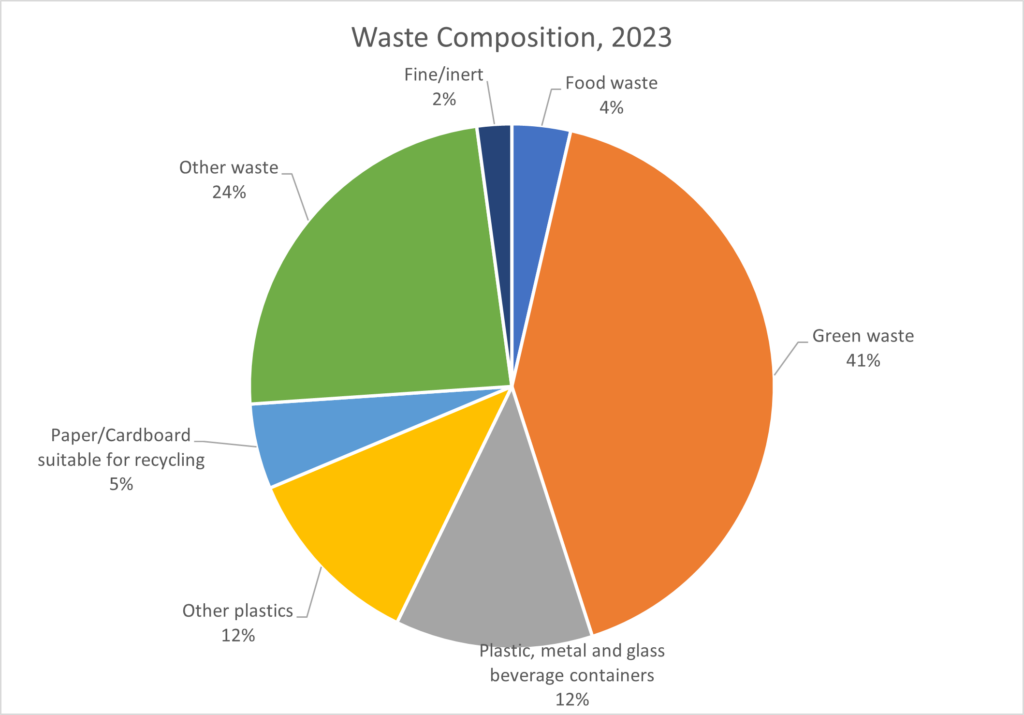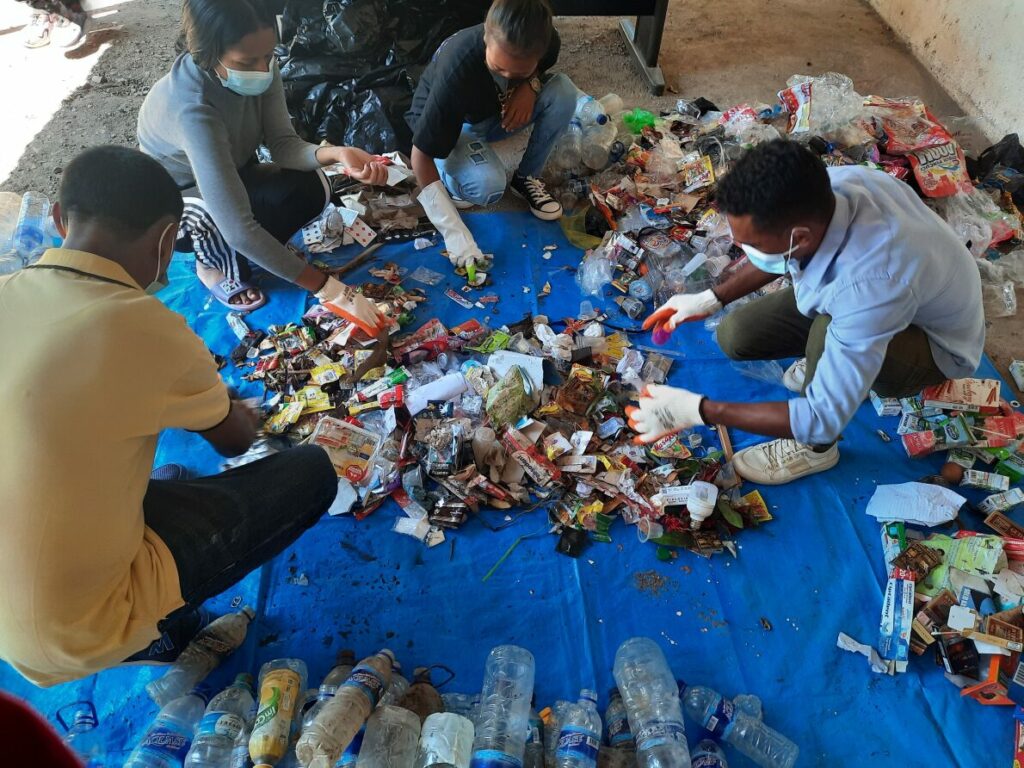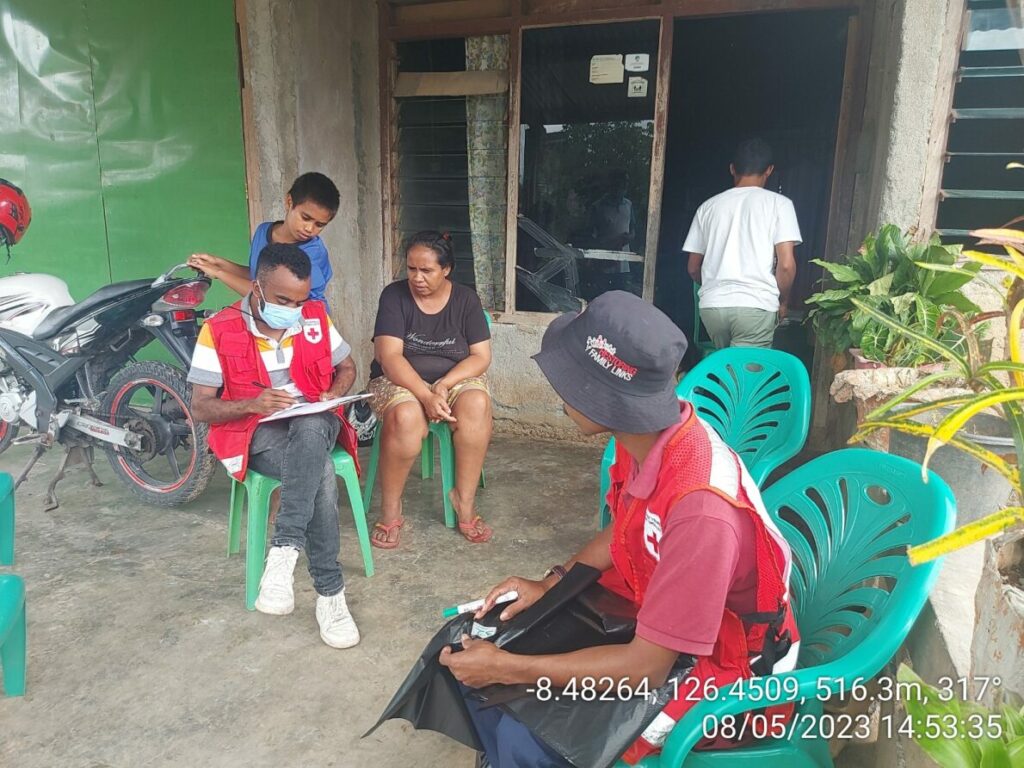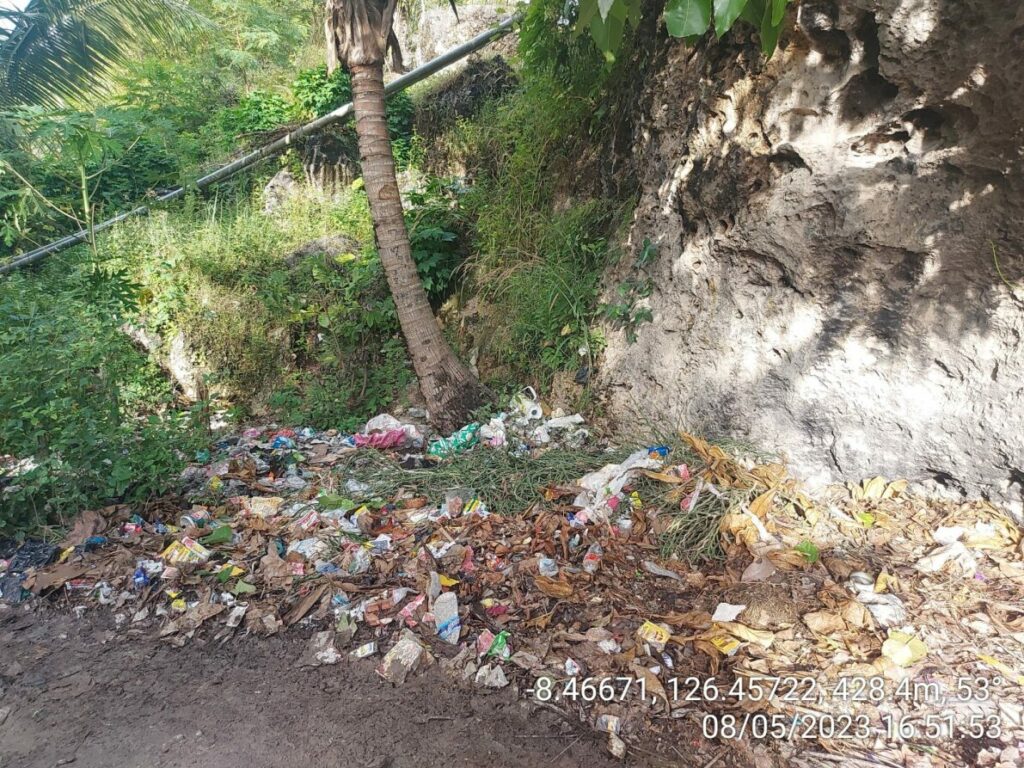The Project Preparation & Implementation Programme for Timor-Leste (PPIP) aims to support the identification, preparation, and implementation of technical, financial, economic, environmental, and social investment projects in the sectors of solid waste, forestry, water supply, sanitation, and drainage. Solid waste management is a severe challenge for the country, causing serious problems such as drainage stormwater pollution and channel blockages, leading to flooding. The Clean Ocean Initiative intends to find a solution to these challenges. Accurate data is an important aspect of this project, therefore, a waste study between 9th and 18th May 2023 was conducted in the towns of Suai (Covalima Municipality), Maliana (Bobonaro Municipality), and Baucau. The goal was to identify the level of generation and composition of municipal solid waste (MSW) produced by households and contribute to the provision of baseline data for the PPIP and the Government of Timor-Leste to develop a sustainable solid waste management system, policy, and strategy.

In general, the Municipal Water, Sanitation, and Environment Services (SMASAs) are responsible for waste management in the three research locations. However, their waste collection services are very limited and are conducted through contracted service suppliers. Ordinary trucks without any compacting or lifting arrangements are used to collect waste from temporary waste collection points (TPS) and dispose of them in non-authorised dumps. Waste collection only covers a small portion of the towns, including some public areas and institutions, but no private households are serviced.
The study was conducted in the most densely populated areas of the three municipalities, with a total of 300 households selected, 100 from each municipality. The selection of study areas and participating households and waste producers was done in collaboration with the City Governments (SMASAs). The study was conducted over a period of three weeks, resulting in a total of 2,100 samples collected for the three municipalities. During the waste study, respondents were instructed to gather all waste as they would normally dispose of it in a delivered trash bag, without burning anything or throwing anything to the river/ditch/ or elsewhere. The waste collection was conducted every day over a seven-day period in each of the three towns. The team collected the waste in labelled trash bags, either directly from the doorstep of the households or from a point at the main road to which the households agreed to bring their waste. Each trash bag was recorded (weight and origin) and then all bags were brought to a central place where segregation took place based on physical properties, and the labelled trash bag was distributed to collect the waste for the next day. The following figure summarizes the waste composition of the samples:

Conclusions
The waste audits conducted in May 2023 in Baucau, Maliana, and Suai, Timor-Leste, covering 300 households for a week, revealed the following conclusions:
- Waste collection service is generally unavailable in the municipalities, and only a small portion of the town streets are serviced by the municipal waste service.
- The communities in the three municipalities mostly manage waste by burning it, and a significant amount of waste is dumped in backyards or into the nearest rivers, which eventually ends up in the ocean.
- Suai has the largest waste generation among households/residential areas, followed by Baucau and Maliana. The overall unit generation rate for the study area is estimated at 0.23 kg/cap/day.
- Green waste constitutes the largest portion of the MSW in all project sites, but no composting activities take place.
- Food waste is virtually non-existent in the MSW, as it is used as fodder for domestic animals.
- High-value materials are present in the waste in large quantities but are not collected for recycling.
- Some textiles and rubber waste are present in the MSW in some project areas due to second-hand market activities for imported clothes and shoes.
Recommendations:
The Timorese Government is responsible for providing adequate and efficient waste management services, including waste reduction and sustainable solid waste management. The circular economy concept should be adopted to create economic opportunities, reduce waste generation, maximize resource efficiency, and minimize environmental impact. Community participation and engagement are encouraged to empower local communities, increase environmental awareness, and foster a sense of ownership and pride in waste management efforts. Customized approaches, supportive policies, capacity building, infrastructure development, and partnerships with local communities, businesses, and NGOs are key to successful implementation. International cooperation and support can also play an important role in helping low-income countries adopt circular economy practices and realize their benefits.




